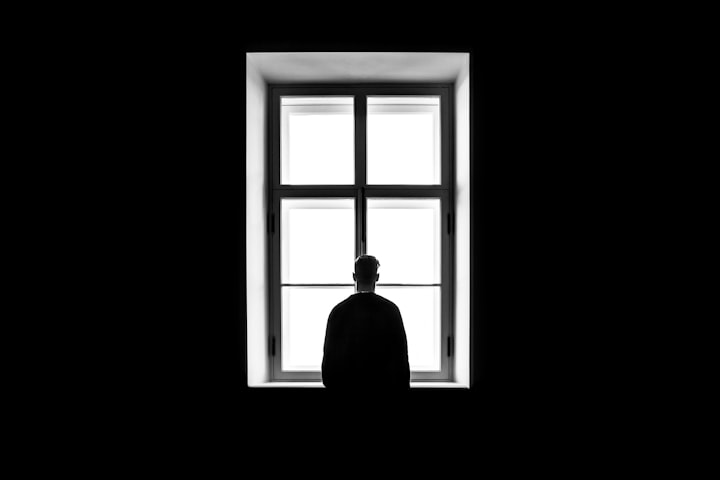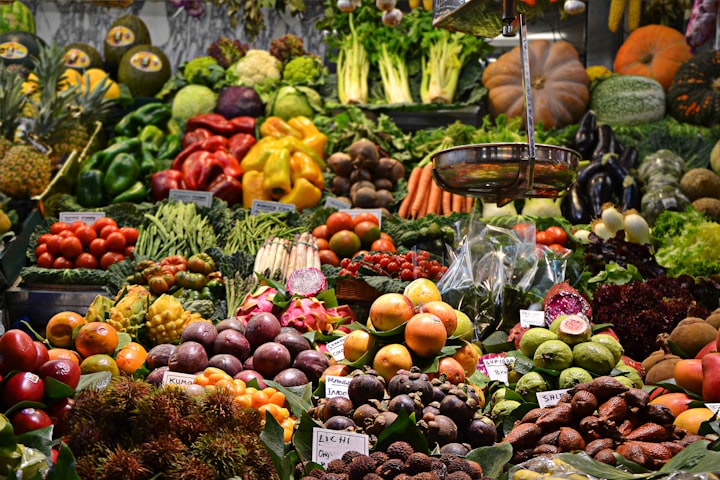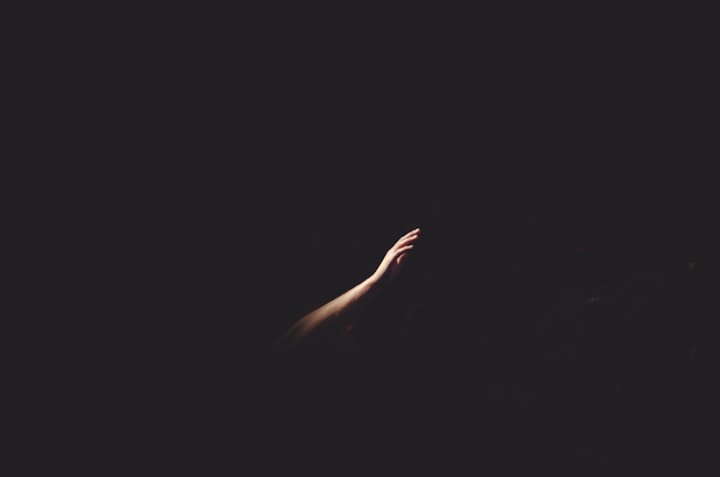Windows to the World
The pain and bliss of solitude

Solitary confinement is deemed to be one of the worst punishments in the hierarchy of psychological torture. And yet, prolonged silent meditation appears to be conducive to serenity and abiding joy. People even pay to go into retreats and relinquish their electronics, their social lives, and their voices for weeks. Clearly, one is forced upon you, and the other undertaken willingly, but that can’t be the only relevant difference. How can silence and solitude be either the most painful things in the world or the most blissful? And in between these two extremes, in the many shades between serenity and torture, do we have a freedom to pursue relief, or are we doomed by our personalities to feel whatever we feel when we’re alone with our thoughts?
We have an intuition: If we did have a choice, we would all pursue peace. Like most intuitions, this one deceives us. The fact that solitude is more often painful than peaceful seems to indicate that it can’t help but be hurtful. Loneliness hurts. Solitude doesn’t have to. We tend to confuse them, but the difference is that loneliness is a craving for companionship, and a craving begs to be satisfied. In fact, like most cravings, we think it can’t go away unless it’s satisfied.
Why are we tortured being alone with our thoughts? It’s not the silence of the room that’s deafening, but the incessant mental noise engendered by that silence. Without a noisy outside world to drown out your inner voice, to keep you distracted and engaged, your thoughts impose themselves rather violently on your consciousness. And they can be loud, rowdy, needy, dark, sad, paranoid, and worst of all, endless. It’s like multiple TV channels are on simultaneously, and you don’t have a remote to lower the volume or shut them off.
You have an illusion of free will, but try to exercise your will to make your thoughts stop churning. You don’t have the remote. And if you don’t have freedom to will different thoughts, or will thoughtlessness, how can you freely will any action that by defaults needs to be thought of? Thoughts arise on their own, collide on their own, disappear on their own, and yet you call them your thoughts, as if you had authored them as consciously as you authored every word on the last text you sent someone (and even then, you might wonder who authored the thoughts that preceded the typing).
Your thoughts. As if you chose to think them, as if you could have chosen not to think them or think different thoughts instead. Indeed, you tend to take more authorship of the thoughts you really think you could have thought: they are the kind of thoughts someone like would think. So you adopt them as your own. But the "intruding" thoughts, sometimes immoral or completely foreign or unwanted, don’t feel like your own. But whose are they, then? If you understood their provenance, perhaps you could hit “unsubscribe.”
The experienced meditators aren’t alone with their thoughts. They’re just present in the state before and when thoughts arise, before they capture your entire consciousness like malware pop-up ads that you can’t close on your computer. The expression “train of thought” is elucidating: thoughts are like trains connected to one another, and they never stop coming, forever blocking your view of whatever landscape may hide beyond the tracks, and drowning out the ambient sounds. Why have we been denied this landscape, and can we possibly tell the trains to take a break?
Inside the room, looking in, looking out
We were already lonely before the year 2020. We interacted more with strangers than with friends, more with “social media friends” than with friends in the flesh, and more with unpleasant strangers than with pleasant ones.
We were forced to add even more solitude to that loneliness. We’ve spent too much time lately restricted to a small physical environment: an apartment, a house, or a room within. Within this room, physically speaking, there’s not much to react to. No wolves, no snakes, no neighbouring bands of marauders. Look around you, and you’ll see mostly inanimate objects without a story to tell. There are literal windows into the world, where people and cars go by, dogs wag their tails, branches sway in the wind, and the sun rises and sets: boring.
But this boring world out there, if you linger on it for a sliver of a moment after opening your shades, is blissfully deficient in the capacity to hurt you. Can you truly feel anxiety, resentment, anger, fear, hatred, envy, or jealousy when actively listening to the rain or watching a squirrel leap from branch to branch? This repose from psychological suffering is always available and yet seldom — if ever — visited. What does it mean to feel mind-numbingly bored when looking at a tree? It means you’d rather be doing something else, somewhere else, rather than numbing your mind, the very thing you so desperately wish you knew how to do when your thoughts torment you! You never think to seek boredom. Mind-numbing boredom.
We run away from it, and into the world. And how do we know what the world out there is like, what people are like? Are they friend or foe? Are most people well-meaning or malicious? Are most people Good or Evil or neither? What’s happening across town? What’s happening to billions of people in hundreds of different countries? How many people have died in car crashes today? How many were mugged? How many were born? How many died? We can’t see these events personally, and so we can’t count them. We rely on someone else to count them, and we have to trust them to collect the data and tell us: this many babies were born today, and this many people died of this cause. This law was passed, this guy got shot, this woman won an Olympic medal, and this movie is out in theatres.
But we don’t do that for very long either. Data are inanimate, just like our household objects. We crave storytellers and their stories, and if data figure in these, as the bludgeon in the hero’s hands, then so be it. Often, we have other, more exciting windows to the world. More than anyone’s ever had, and just as infinite as anyone will ever have.
You could open a window, a channel that only shows you the most horrible things in the world: refugees drowning, murders, police shootings, car crashes, wars, famines, child slavery, environmental catastrophes…
You could concentrate really rare events into an constant stream and overestimate the risks of all of them. You could meet a group of millions of life-long heavy smokers who don’t have lung cancer and are determined to rid the world of the Lie About Smoking, or a group of millions, including some PhDs, who claim to have discovered a truth being hidden from you by governments and academics: the Earth is flat, the Holocaust never happened, vitamin C could cure everything.
You could open a different window, a rarer kind, only showing the best of humanity and the natural world: people saving lives or leaving massive tips to overworked servers, or inspiring quotes and photos of cute animals… But if you only consumed the best things in the world, you feel you’d be ignorant, and perhaps not blissfully so. Without anything to react to, to learn from, to stand for or against, you’d get bored again. You’d grow complacent and naïve. Maybe you’d be taken advantage of. You’re pushed into a feeling, strange but irresistible, that the other windows are not only more exciting but more useful.
Someone helped blind old ladies cross the street today. But we didn’t hear. Most people drove just fine and didn’t cut anyone off or cause an accident. But we didn’t hear. Most people are so tired of hatred and division that they’ve become literally speechless, and so you only hear the ones angry enough to demand themselves heard. Most people didn’t kill anyone, say anything racist, or commit sexual assault. Most people didn’t write either a Marxist or a Fascist call-to-arms. But we didn’t hear. The world is suffused with significant non-events every day, but we have to remind ourselves that we didn’t witness them. We’ve forgotten that omissions can be as consequential as acts.
The windows are endless: The climate disaster window, the people being killed by police window, the intellectual gladiators window, the COVID-is-the-end-of-the-world window, the COVID-is-a-hoax window, the freedom fighters window, the justice warriors window…
Are these windows full of propaganda imposed on you by Big Brother or do you choose them willingly? Are you drawn to the catastrophes and self-righteous anger behind them? Are the windows opened from within or from the outside? Do they lock from the inside or from the outside?
Given that the windows are too numerous, and the worlds beyond them too vast, you can never commit to the option of disengaging completely (which would lead to complacency) or engaging fully (which would lead to paranoia). You can never catch up. You can’t read or see or know everything. You can’t become an expert on everything before you judge whether to trust the experts. But you also can’t stay in no man’s land, where you get shot at by all sides. You have no time, and so you pick a trench, and you let the thrill and dread of war consume you. Things could be better, but at least you’re not dead, and at least you’re not bored.
Dreadful peace
We are afraid of peace, stillness, equanimity. We are afraid of them to the same degree that we crave them. How can we be afraid of something we crave?
We’re just not used to peace. Our ancestors didn’t have much peace, and perhaps we’re just not wired for it. You don’t want to sit alone in a room, enlightened by the bliss of What Is. You want to have a purpose. You want to be necessary. You don’t want to be an anonymous cog in some giant machine; you want to be the machine, the inventor and invention both. A holy warrior. A knight. A prophet. A genius. A soldier on the right side of history. A remembered name. We want to bludgeon Evil people to shame or death with our Goodness. But no one errs willingly, and they also want to bludgeon our Evilness with their Goodness. Does our appetite for war make it a self-fulfilling prophecy? Beyond Good and Evil, black and white, right and wrong, lies our old friend: boredom.
Whenever you try to lay down your arms, something calls you out with more promises of honour: “There is a war raging out there,” “civilization is bordering on collapse,” “we’ve lost the values that held us together,” “the tyrants are at the city gates,” “our freedoms are being threatened.” The communists, the fascists. The cup of righteousness is bottomless and still it can never quench our thirst. If we stopped to notice, we would stop drinking from it.
The tragedy is that when this current battle is over, you won’t be happy and you won’t be relieved. When the pandemic ends, when the politicians you hate are gone, when your cruel boss dies of a heart attack, you’ll be hungry for the next evil to vanquish. You’re a sentinel on the war front and you mustn’t fall asleep, lest the enemy attack. And winter is always coming.
We can zoom into one single neighbourhood of a modern cosmopolitan metropolis and we’d see people of hundreds of nationalities who speak dozens of different languages, practice dozens of different religions, and have a range of political persuasions. They co-exist, not entirely without friction, but still shaking each others’ hands, eating each others’ food, and staying out of each others’ way. And we’re more polarized than ever? Ever?
Because we speak the same language, and because our telescopes point to the same stars, and because we have a common universal history and are made of the same stardust, and because we know we have a common ancestor and thus have come to know that the minor variations in our visible phenotypes make little difference to our essence, we’ve descended into the narcissism of small differences, a less deadly but more constant type of bickering. We’re too equal and too peaceful, and growth requires conflict. And so we seek it out before it finds us, and we are found by those seeking it, who we then call troublemakers, even though we need someone to be small so we can be big, someone to be wrong for us to be right, someone to be evil so we can be good. And so do they.
Does it feel paradoxically horrible but exhilarating to be a warrior? You have a purpose, a heroic role you’ve cast for yourself, a role you take far too seriously because everyone else seems to as well. You become a method actor. You lose yourself in this manufactured purpose, to the extent that you might actually be willing to die on that hill after the impassioned Shakespearean monologue that’s left you hoarse and trembling. The crowd loves this version of you, and you love to be loved, even if only as a performer! Why would you ever take the mask off? You would rather die before surrendering to “tyranny,” or before having to acknowledge, with shame (the most vile of emotions), that you’ve been tyrannizing others with your arrogance and your narcissism. At this point, you’d be willing to die on any hill before admitting you were ever wrong.
For as long as we see doubt, ignorance, humility as weaknesses rather than virtues, we will be trapped in this addiction to feeling right and righteous. And the more we need to feel right, the less likely we are to allow the cognitive flexibility necessary to be right about anything. And if we allow this illusion of righteousness to become our lifeblood, we’ll forever vampirize precisely those who could save us from ourselves. Those who can refute us and be refuted in return.
Temptation
Odysseus had himself tied to the mast of his ship so as to resist the sirens’ song. The sirens were a passing temptation. We’ve tied ourselves to the sirens. The windows to the world are never boarded over, never locked, never closed, hardly ever even left ajar. We carry them with us — in our pockets, on the toilet, in the shower, while we walk, while we eat, while we talk. All of us want to close some windows. But we don’t know how. The world rushes in through them, with so much strength we can’t counter it. We’re drowning in too much world. There’s only so much burden a human hero can shoulder. You need challenges and quests in order to grow, but real-world obstacles and quests should suffice. Saving the fate of civilization from every threat — real or imaginary — every single day is simply too much.
So counter the world with dreadful silence. Surrender to its nothingness and stand your ground while the world moves on without you, despite you. When the craving to matter dissipates, it won’t make a difference that you’ll never be the hero of you daydreams, the hero who keeps struggling and fighting and never sees a reward. The silence we dread is the mast we must tie ourselves to. We should strive to be mind-numbingly bored, sometimes, so we can be rewarded with the extraordinary peace of not always needing a reward when we have to face the world again.
About the Creator
Scott Hardy
Writer, musician, chef, compulsive bibliophile and cinephile, from Vancouver, Canada.






Comments
There are no comments for this story
Be the first to respond and start the conversation.